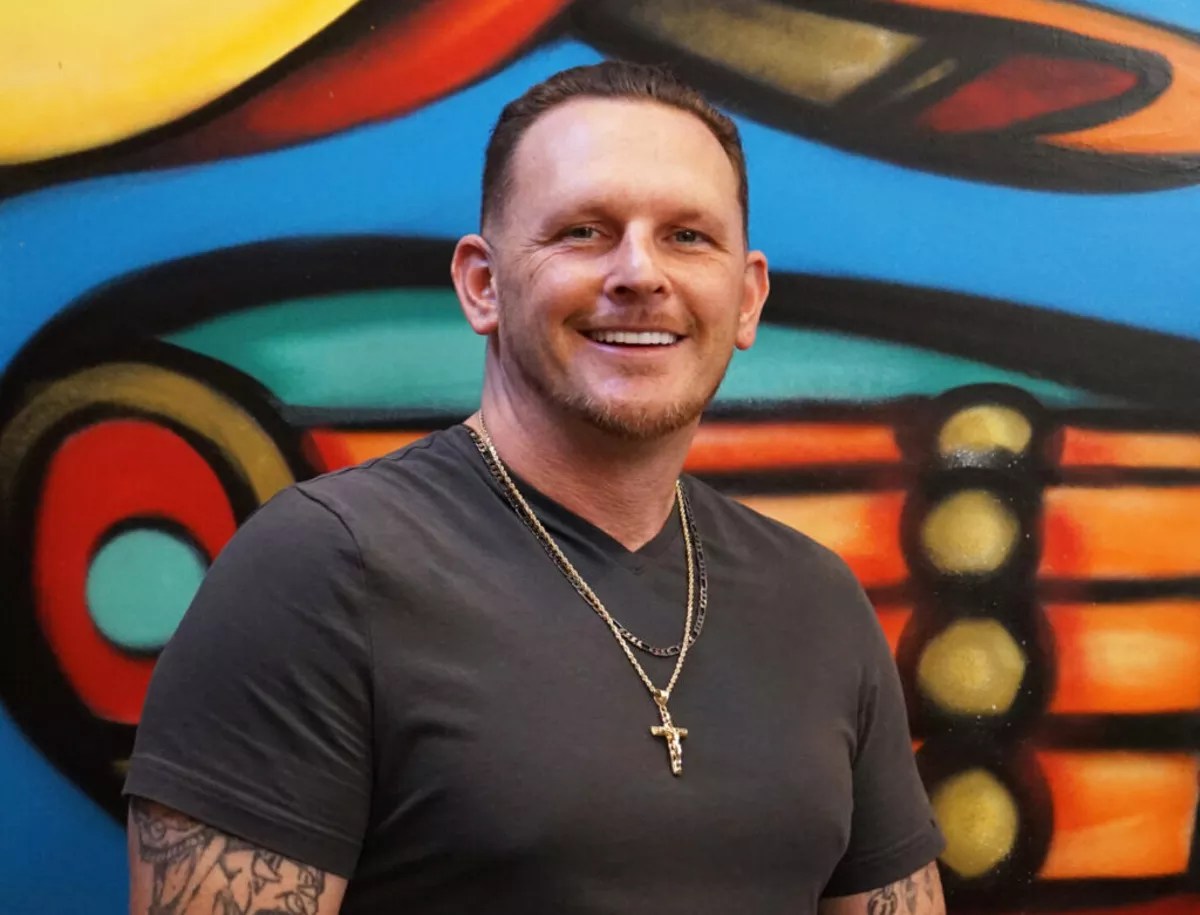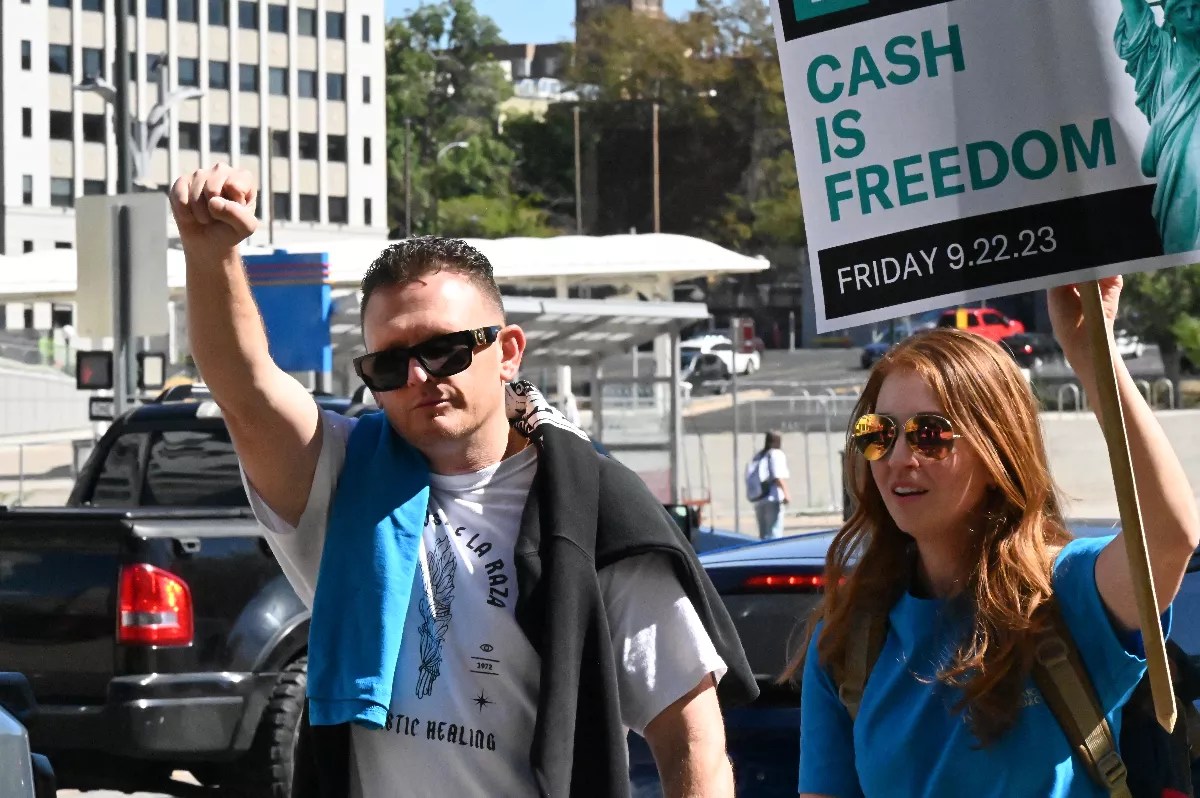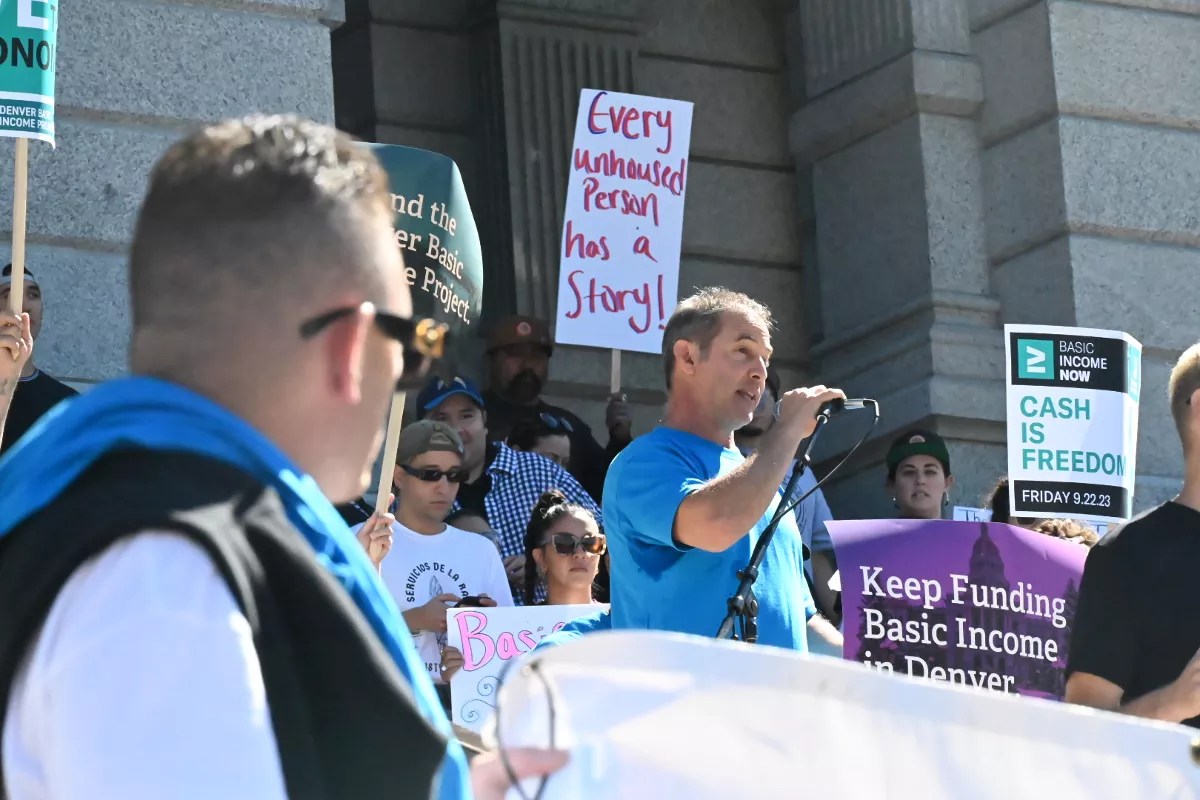
Courtesy of Servicios de La Raza

Audio By Carbonatix
When Nick Pacheco reflects on how he went from spending much of his life in prison to dedicating himself to serving his community, he thinks about one day in 1988, when he was ten and playing on his Atari in his room.
A masked man came in.
“I got scared, I looked up at him,” Pacheco recalls. The man pulled up his mask and said, “Nicholas, I’m a detective. Do me a favor. Put that controller down. Just come with me. I’m going to take you outside.”
Law enforcement authorities had raided the house where he lived with his mother and stepdad. His parents had been put in handcuffs and his home searched; his mother had been arrested for cocaine.
Pacheco didn’t know anything was wrong until the detective, geared up like a member of a SWAT team, came to talk to him. “I’m going to carry you,” he said.
“Why?” Pacheco asked.
“It’s a mess out there,” the detective said. “I don’t want you to open your eyes. I want to close your eyes, and when we get across the street, I want you to go across the street to your neighbors.”
But Pacheco “opened up my eyes, and I see our whole house flipped upside down,” he says.
Pacheco’s parents had met in a Hells Angels biker bar in Oakland, while his mom’s husband was in prison. He was born soon after, and his dad took him away for the first year of his life. His mother “didn’t know where I was, and when he finally brought me back, my mom’s husband got out of prison,” Pacheco says.
The family packed up and moved to Colorado “to get away from my real father, who was dangerous, who she was scared of,” he recalls.
Pacheco grew up in southwest Denver, where he was “a good kid,” he says. “I was your everyday wholesome kid.” But when he was around ten, his stepdad, “who had been my only dad my whole life,” started beating him.
Even though his family is Mexican, Pacheco has white skin. “I didn’t like that part,” he remembers. “I was insecure. I wanted to look like my family. That put a lot of weight on me, being angry, being beat on by my dad. I developed an attitude.”
Then the cops raided his house, and “I was known at school as the drug dealer’s kid,” he recalls. “I think that was the day my life changed. My mom was kicked out of [the parent teachers organization], no more school functions for her, no more support. It changed everything.”
Pacheco leaned into his anger. “I started lashing out on other kids. I was known as having trouble in my life,” he says.

Nick Pacheco holds up his fist at a September 22 rally for the Denver Basic Income Project.
Bennito L. Kelty
He started running away, smoking weed before he was a teenager; a few years later, he started stealing his mom’s cocaine out of the bathroom. “I had the bright Idea that I was going to sell it, but then I also started to try it,” he says.
“These actions that happened, these behaviors I developed, I believe today that it was all from my attitude,” he explains. “My perspective on life, I didn’t feel worthy, I didn’t feel valuable. So I made un-valuable decisions.”
By fifteen, when he started attending Abraham Lincoln High School, he was carrying a gun, “doing adult crimes” like selling drugs and burglary, “thinking that I was going to get rich. That was my whole goal. That way, I could take care of myself and everyone I wanted to,” he says. “That was a lie. A lot of us fell for it growing up in the neighborhood I grew up in.”
After committing burglaries across Douglas, Jefferson and Adams counties, Pacheco was arrested for the first time when he was eighteen, in 1996. “That was the beginning of a career” in the Colorado Department of Corrections, he says. He got an eight-year sentence.
He was out in 2004 when police came to his apartment on the suspicion that he had violated his parole by having an illegal firearm. He refused to open the door, so they ripped it off the hinges. He was arrested while his newborn son was still in the hospital.
Pacheco was released from prison in 2006, after completing his original eight-year sentence. He continued his life of crime, committing a string of armed robberies in 2007 in Adams County and Broomfield. By now, his girlfriend was expecting their second child.
While he was at a drug treatment center – getting over an addiction to cocaine and meth – police cleared everyone out of the building and grabbed Pacheco, worried that he might try to run away. By now, he had a history of evading police during high-speed chases. He was arrested the day his daughter was born.
The court gave Pacheco, now 29, a 24-year sentence for a couple of counts of armed robbery. This time, he was also being charged as a habitual offender, and hearing that finally made something click in Pacheco.
“It was in that moment, when I was told I was being charged as a habitual criminal, that I knew that was it,” he says. “That was the moment I got down on my knees and asked God, my creator, to change me.”
He started his road to redemption at the Limon Correctional Facility, which was “back then, and still is, one of the most high-profile prisons in Colorado,” he says. Things slowly got better. Pacheco was able to overcome his drug addiction and started to establish a good reputation for himself.
He tried “to be the best father I could from a penitentiary,” parenting his kids through a glass window whenever they came to visit from Denver. But he and their mother had split.
In 2015, now in the Centennial Correctional Facility, Pacheco signed up for a profile on writeaprisoner.com, not expecting much. “I thought this pen-pal stuff was a joke. It wasn’t real to me,” he remembers.
But six months after paying $75 to post his 300-word biography and two pictures on the site, he found a letter on his pillow after coming back from the gym. It was from a woman named Kelly, who was single, college-educated, without kids, who owned her own business and lived in Cherry Creek.
Pacheco started talking with her through letters for a few months; then they went to phone calls before finally arranging a visit for his birthday.
“Kelly came to see me, and she had never been to a prison, had never met anything like me,” he says. “When she came to see me for the first time, I couldn’t even look her in the eyes. She had these big green eyes, and she’s beautiful, and I couldn’t understand.”

Nick Pacheco listens to Denver Basic Income Project founder Mark Donovan during a rally at the State Capitol.
Bennito L. Kelty
The two started a relationship even though Pacheco was still behind bars. “It was something that changed my life, was meeting Kelly,” he says. “I learned to sit up and eat my meal, not hunched over my bowl or sandwich like someone is going to steal it. These things I learned from her – these communication skills, these social skills – is a big part of where my life changed.”
She also helped him get a transfer to the Denver Reception & Diagnostic Center, which would reunite him “with the city I grew up in, the city I terrorized,” he says.
“All I could feel was remorse, all I could feel was guilt,” he says. “It was a surreal feeling driving on I-25 on the bus coming back to Denver, and to see the places I’ve seen, see the places I’ve robbed, to see the neighborhoods where I’ve done so many burglaries, so many robberies in my life.”
Coming back to Denver gave him the opportunity “to face it again but feel differently, because I don’t do those things no more. I’m purged from crime. I’m purged from feeling angry,” he says.
In DRDC, Pacheco started working in peer education. His job was to help new inmates navigate the system, which required trust. “You have to be an honorable guy to stand up and tell somebody how to stay alive and stay safe,” he says. “I had a good name, I never done nobody dirty, and so that carried weight with the guys doing peer education.”
He also had his first experience helping others, which “created a spark,” he recalls.
In 2021, Pacheco was released on parole after serving half his sentence. He had been in touch with another former prisoner who worked at Servicios de La Raza, a local nonprofit service group. Ultimately, he was hired as a program manager, a job he still has today.
He helps connect people in need – including migrants and others who are homeless – with the services and resources they need. He’s collected clothes for migrants, found education programs and job training for the homeless.
Through Servicios, he met Mark Donovan, the founder of the Denver Basic Income Project. He shared his story while they were waiting for a meeting, and Donovan asked him to join the project’s structure and governance task group. As a result, Pacheco helped the project decide how to hand out $12,000 over the course of a year to individuals experiencing homelessness.
A connection Pacheco made while in a halfway house gave him another opportunity: He was asked to talk to the Arapahoe County Community Corrections Board about his experience. When he was asked to again speak before the group, he suggested that he just serve on the board.
Pacheco applied for an open spot and was appointed in March. It was then that he learned he’d completed his parole in December.
Even though Pacheco had called the adult probation parole hotline every month, a requirement of his parole, no one had told him that he was done. Eventually, an officer told him he that he wouldn’t have been appointed to the board if he were still on parole, and showed Pacheco his certification that said he’d completed parole. “I was a free man,” he realized.
Today, Pacheco’s first son is nineteen and his daughter is sixteen. He and Kelly have been dating for nine years and have an eighteen-month-old son. He says his main goal now “is for my kids to be proud of me, to say, ‘That’s my dad, this is what he went through.'”
This October will mark three years since Pacheco, now 45, was released from prison.
“I’m just soaking it up,” he says. “I’m just soaking up and learning as I’m going.”